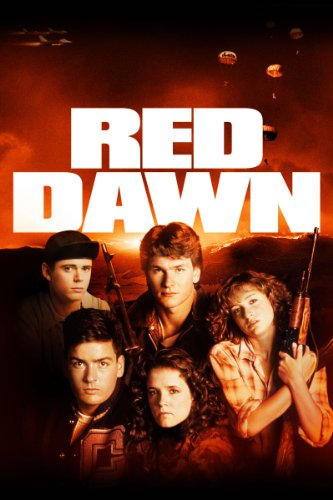Jace911
Spider-Dork
- Location
- The Gold-Bricking State
*googles*
sweet monkey godzilla christmas, I thought Zero Dark Thirty was apologist bullshit but this is, like, actually monstrous
My morbid curiosity need to be satiated. Having seen neither, what is wrong/apologist about both films?*googles*
sweet monkey godzilla christmas, I thought Zero Dark Thirty was apologist bullshit but this is, like, actually monstrous
My morbid curiosity need to be satiated. Having seen neither, what is wrong/apologist about both films?
You just have to watch the sheer joy he takes in hamming it up like an industrial bacon farm in Masters of the Universe.
It's reminiscent of Von Sydow as Ming the Merciless - clearly having a ball with the over the top cartoon villain role, but bringing actual acting chops to the thing.That's true, Langella's Skeletor is a joy to watch.
(genuinely intimidating, too; Langella brings serious presence to the role, making it clear that this Skeletor is not messing around)
That is memetic.
Not enough. Now do you feel like a hero yet?Fucking... they do the Spec Ops scene, and portray is as an unambiguously good thing?
Just, level with me, how many looking glasses have we passed through at this point?
Man, then you'd be okay with not seeing Unthinkable, because that thing is RoE combined with ZDT.*googles*
sweet monkey godzilla christmas, I thought Zero Dark Thirty was apologist bullshit but this is, like, actually monstrous
The plot builds on one idea:Fucking... they do the Spec Ops scene, and portray is as an unambiguously good thing?
Just, level with me, how many looking glasses have we passed through at this point?



For some people there is no such thing as an anti-war film; if it's got war, it's cool.Red Dawn is an incredibly bleak film, I don't honestly know how one could watch it and think it's about jingoism or exceptionalism, if anyone watches this movie and sees glory of any kind, I have to wonder how they define that.
I have to heartily agree. I always took Red Dawn as actually a pretty powerful anti-war movie, really. That yes, war can come, and you have to fight to protect your people, but you can't give yourself over to it, or war will consume you until there is nothing left.
When he rushes outside to see the already mortally wounded brothers stumbling by, he looks at them, looks at the gun in his hands, and disgustedly drops it into the snow, bidding the brothers 'vaya con Dios'. He's done with war.(IN SPANISH) I can't remember what it was to be warm. It seems a thousand years since I was a small boy in the sun. How did I come to this high, desolate place where there is nothing but loneliness?
So much is lost. I want to look in your eyes and forget. It all seems so far away: A warm house where my shadow never falls, your long, black hair in my hands...
There is no more revolution, only you to come back to. I will post my resignation.
And Matt just shrugs, like 'does it matter?' He's beyond caring anymore.Danny: "We're going with you, Mattie."
Matt: "No."
Danny: "We're going with you!"
Matt: "Listen to me! We are all that's left. Someone's gotta live. Somebody's gotta make it. Me and Jed, we're all used up."
Erica: "No. (SOBBING) I'm never gonna forget. As long as I live. Never forget."
Matt: "Don't."
Danny: "Matt... You're never gonna know who won."
This even gets lampshaded when the Air Force pilot mentions that the Russians used the same method they used on Afghanistan - military aircraft spoofing civilian transponders. (Although, lets NOT get into just how feasible this would be with the last dregs of the Cold War still simmering in the pot.)It is the story of the Soviet-Afghan War told in a setting that Americans can easily recognize and empathize with.
Yeah well, let's be honest, the invasion plan here just... doesn't work. But it's not really very important for the purposes of the film.This even gets lampshaded when the Air Force pilot mentions that the Russians used the same method they used on Afghanistan - military aircraft spoofing civilian transponders. (Although, lets NOT get into just how feasible this would be with the last dregs of the Cold War still simmering in the pot.)
Indeed. Those that tend to hyperfocus on this are usually the sort that, as you said, miss the point of the film.Yeah well, let's be honest, the invasion plan here just... doesn't work. But it's not really very important for the purposes of the film.
Correction, it's DissMech.
Take your time, you both need it. We can keep ourselves entertained while she gets better.So as some of you may be aware, Dissmech was attacked by someone near our apartment. She's physically fine, she's just in the recovery phase and things are a little rough for her.
I'm going to be doing some solo reviews to help deal with my feelings of guilt and powerlessness, because its an important element of a lot of fiction and because I feel it will help me. Sorry for the delay, things have just been really tough.